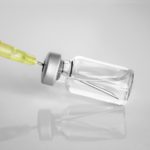 Gout affects an estimated 4% of the population, or around 1 in 25 people. Evidence suggests this number is growing and is certainly affecting a larger demographic than in the past. A lot of confusion has surrounded the specifics on how high levels of uric acid may affect the heart and kidneys, even when acute Gout attacks are not present.
Gout affects an estimated 4% of the population, or around 1 in 25 people. Evidence suggests this number is growing and is certainly affecting a larger demographic than in the past. A lot of confusion has surrounded the specifics on how high levels of uric acid may affect the heart and kidneys, even when acute Gout attacks are not present.
There have been studies attempting to separate the mortality rates of those with other risk factors, namely cardiovascular disease and diabetes, from those with just Gout and/or high uric acid levels. The findings seem to suggest that Gout and high uric acid levels are independently responsible for higher death rates across most age, sex, and race subgroups independent of other pre-existing conditions. The University in Limerick found those with the high serum uric acid levels displayed at 77% higher risk of death from all causes, and a 209% higher risk of cardiovascular death. While pre-existing conditions such as obesity, hypertension, diabetes, etc. are strongly associated with a higher death risk, the results did not decrease by much when those factors were removed.
What does this mean for the Gout sufferer? Continue reading “Gout, uric acid, and risk of death”

 According to the latest CARES trial, the Gout drug Febuxostat (Uloric) failed up against Allopurinol when it came down to a combined rate of fatal and nonfatal adverse events for those that suffer with both Gout and Cardiovascular disease. In fact, there was a significant increased risk of death for those that took this drug for Gout while also suffering from heart disease.
According to the latest CARES trial, the Gout drug Febuxostat (Uloric) failed up against Allopurinol when it came down to a combined rate of fatal and nonfatal adverse events for those that suffer with both Gout and Cardiovascular disease. In fact, there was a significant increased risk of death for those that took this drug for Gout while also suffering from heart disease. Regular physical activity can offer us a multitude of health benefits. Recent studies show just 20 minutes a day can produce anti-inflammatory effects, adding to the already lengthy list of how fitness can support our bodies. That’s right! In addition to reducing heart disease, lowering
Regular physical activity can offer us a multitude of health benefits. Recent studies show just 20 minutes a day can produce anti-inflammatory effects, adding to the already lengthy list of how fitness can support our bodies. That’s right! In addition to reducing heart disease, lowering  Gout affects an estimated 4% of the population, or around 1 in 25 people. Evidence suggests this number is growing and is certainly affecting a larger demographic than in the past. A lot of confusion has surrounded the specifics on how high levels of
Gout affects an estimated 4% of the population, or around 1 in 25 people. Evidence suggests this number is growing and is certainly affecting a larger demographic than in the past. A lot of confusion has surrounded the specifics on how high levels of We all know that stress can cause ailments such as difficulty sleeping, muscle tension, changes in appetite, headaches, stomach problems, panic attacks, and prolonged feeling of sadness or worthlessness. But, did you also know that stress can literally alter the cells in our body and lead to chronic
We all know that stress can cause ailments such as difficulty sleeping, muscle tension, changes in appetite, headaches, stomach problems, panic attacks, and prolonged feeling of sadness or worthlessness. But, did you also know that stress can literally alter the cells in our body and lead to chronic